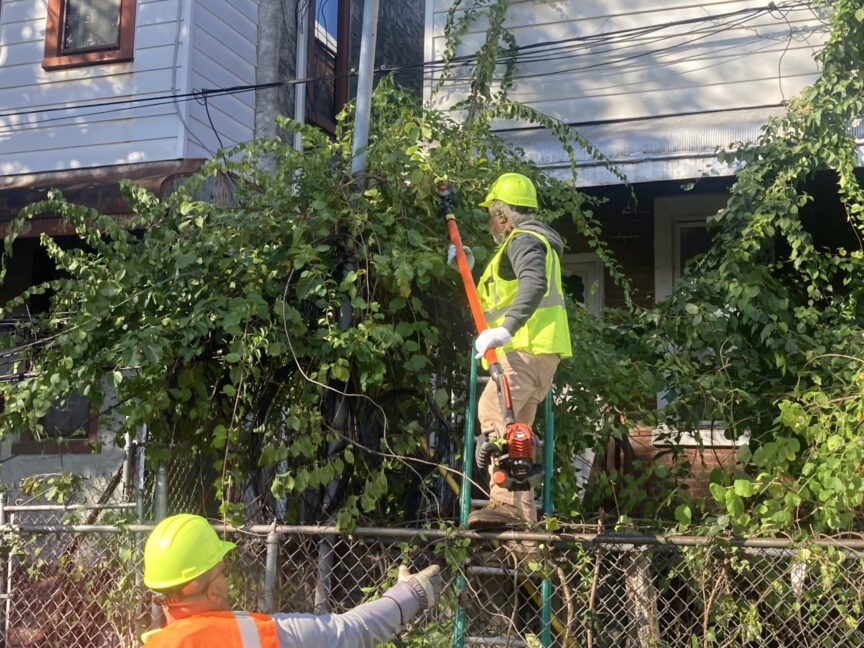PHILADELPHIA — Philadelphia City Councilmembers and city officials today announced additional neighborhood investments funded through the Neighborhood Preservation Initiative (NPI), the $400M citywide program announced by Council in 2020.
Utilizing a portion of the $26.6M of NPI funding earmarked for neighborhood infrastructure, the city has begun to work with residents to identify and remove alley trees which pose a hazard. Poorly maintained alley trees contribute to the deterioration of homes, power lines and safe emergency egress in city neighborhoods. The city estimates that there are thousands of alley trees affecting homes, businesses and power lines, particularly in older neighborhoods. Alleys blocked by trees also accumulate trash and debris, contributing to blight.
In collaboration with the Kenney Administration and the Community Life Improvement Program (CLIP), city-funded crews have begun fulfilling requests for alley tree removal if they meet the following criteria:
- Located near the rear of the property, i.e., not a street tree;
- Not primarily located on private property;
- Tree growth is encroaching upon or endangering property buildings, power lines or otherwise creating public safety issues.
In past years, the city has primarily focused on the maintenance and removal of street trees, leaving the responsibility of alley tree removal to homeowners.
“In listening to our constituents, it’s become clear that these alley trees can create serious public safety issues, so it is in the best interest of our residents to invest a portion of Council’s NPI funding in alley tree removal,” said Council President Darrell L. Clarke (5th District). “NPI funding has created real opportunities to address quality-of-life issues that we haven’t had in a long time and we need to take advantage of them.”
The first round of alley tree removals is currently underway in several neighborhoods. At today’s press event, crews began work on alley trees located near the intersection of Sydenham and Butler Streets in the 8th Council District. The growth of this tree is obstructing power lines so the city will partner with PECO to remove the tree, a process that may take up to two weeks to ensure safety of work crews and residents.
“Many of my Council colleagues and I have experienced a marked increase in constituent calls related to problem alley trees that were creating dangerous situations. My office alone saw a 300% spike in just the past six months,” said Councilmember Cindy Bass, who represents the 8th District. “Because so many of our constituents were unable to remove these trees on their own, we knew there was a serious problem.”
“Today we are witnessing how the Neighborhood Preservation Initiative funding is directly being used to transform and strengthen our neighborhoods,” said Anne Fadullon, Deputy Director of the City’s Department of Planning and Development.
“NPI provides dollars that are important to stabilize communities, and at PHDC, the City’s full-service community development organization, these dollars are being used for programs like this, as well as building much-needed affordable housing, untangling titles, repairing homes and so much more. Thank you Council President Clarke and the other elected officials for making this funding available and easy to use.”
The city has spent just over $560,000 on the first round of alley tree removals, with plans for similar spending in future rounds. Residents may submit information for trees to be removed in the next round by contacting their Councilmember. Contact information for all members of Philadelphia City Council is available at phlcouncil.com.
# # #


